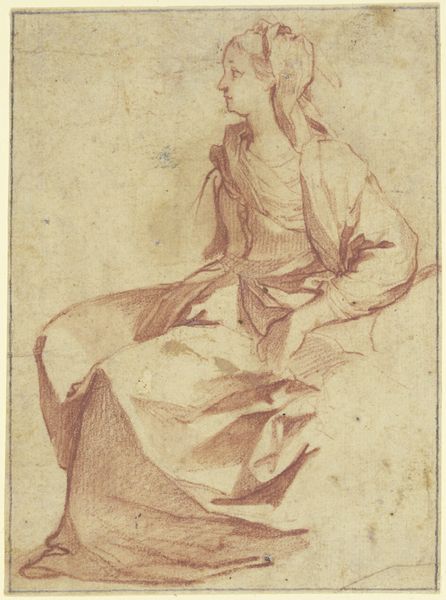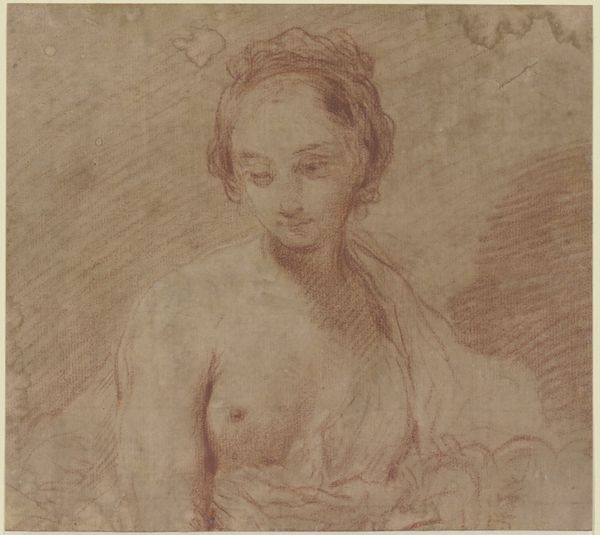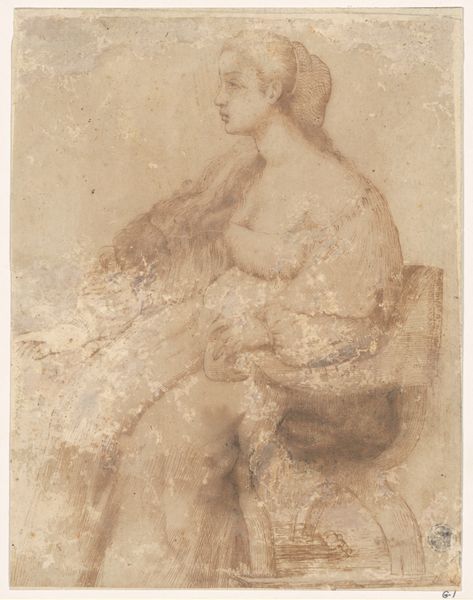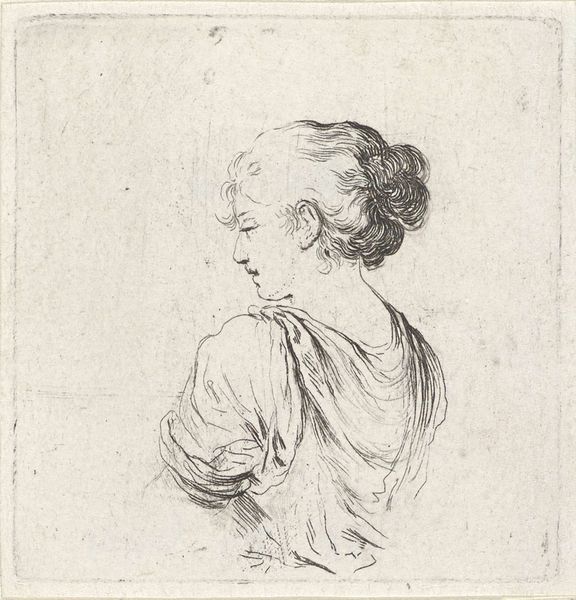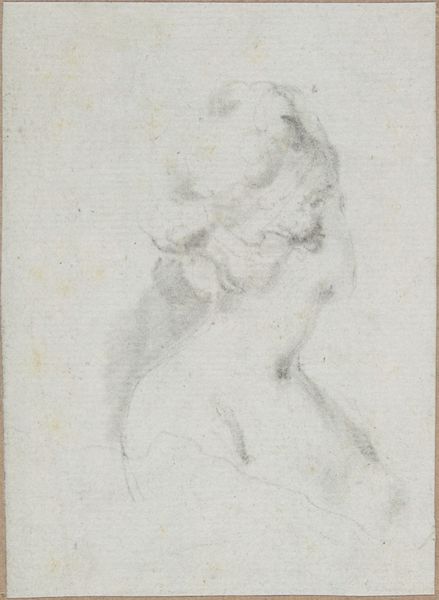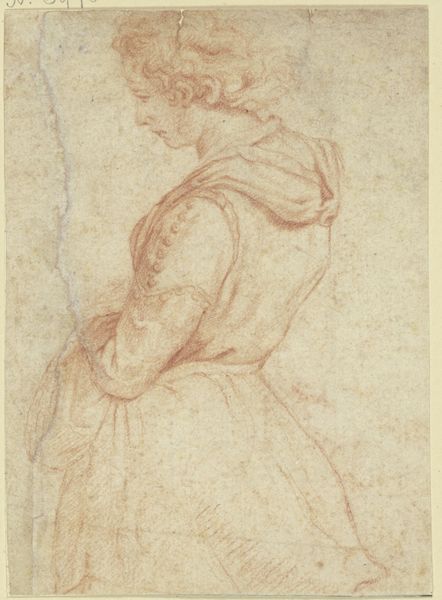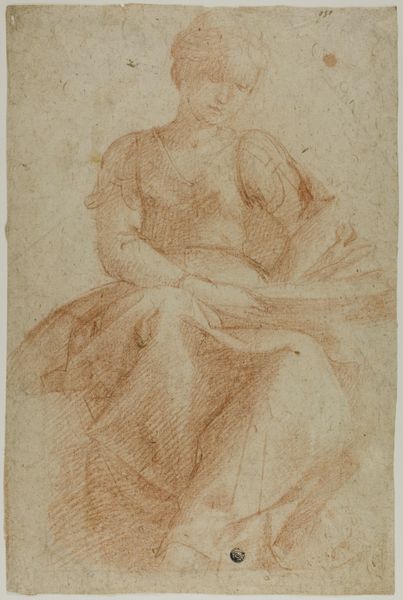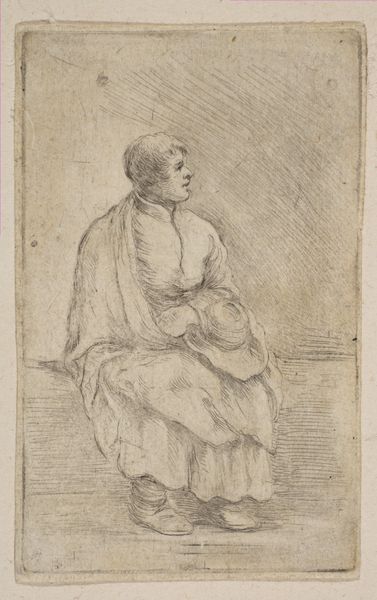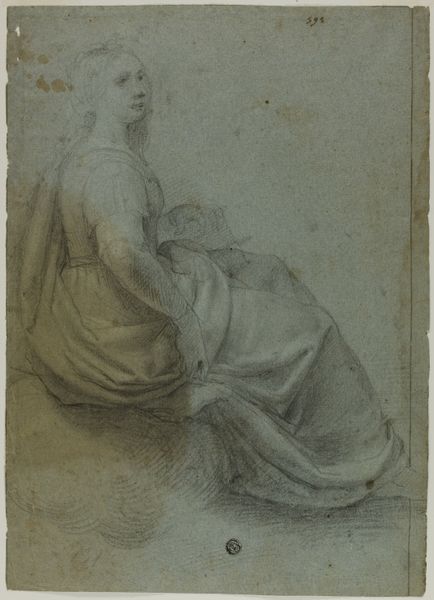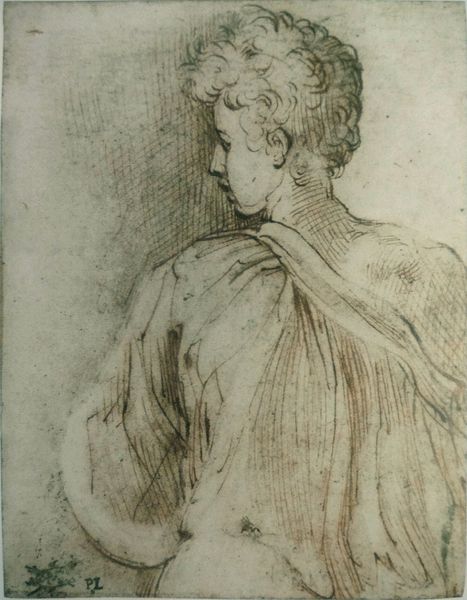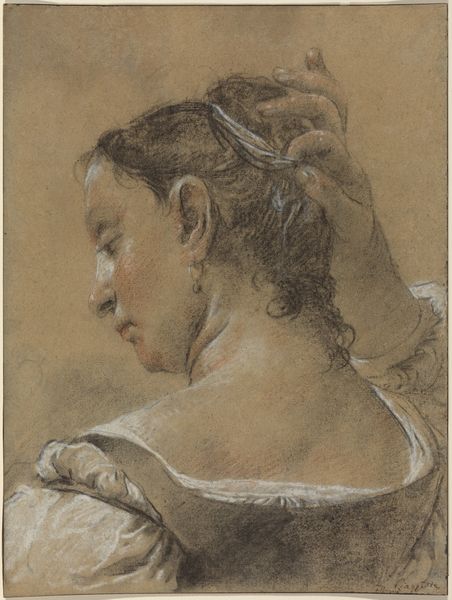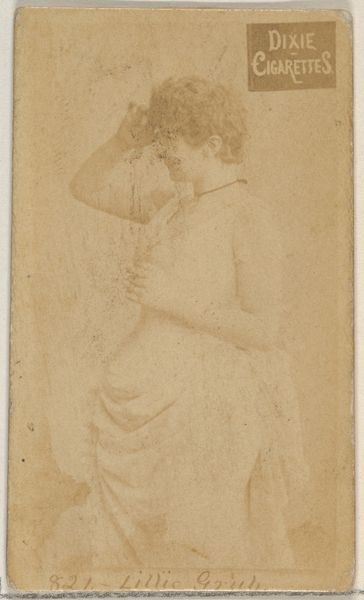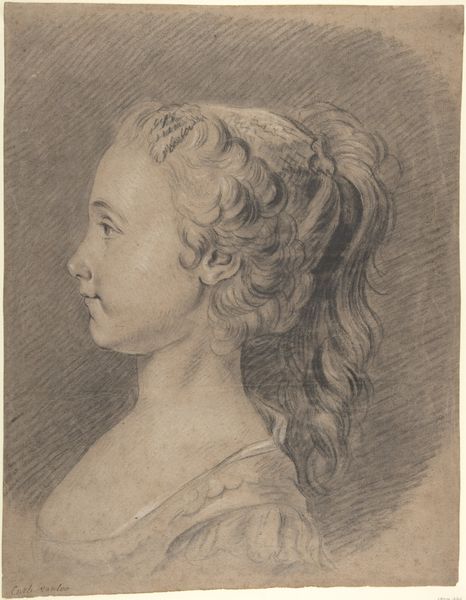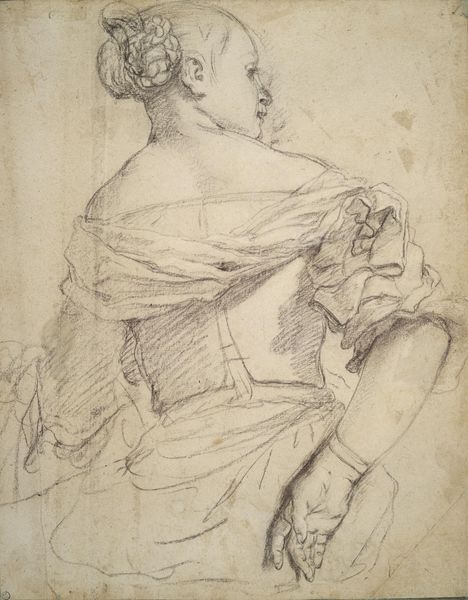
drawing, paper, ink, chalk, charcoal
#
portrait
#
drawing
#
baroque
#
charcoal drawing
#
paper
#
ink
#
chalk
#
charcoal
#
charcoal
#
italian-renaissance
Dimensions: 202 × 279 mm
Copyright: Public Domain
Curator: Standing before us, we have a drawing attributed to Guercino, known as "Woman in Profile, Pointing with Left Hand." It's a piece with uncertain dating, a portrait rendered in chalk, charcoal, and ink on paper. Editor: You know, she looks like she's just about to tell someone off. The way she points, so definite, and her serious profile… someone’s in trouble! I bet she is talking with one of the artist’s workers or models. Curator: Indeed. Considering the materiality of this drawing, let's examine the use of readily available materials like chalk and charcoal, alongside the labor involved in producing such preparatory sketches. Guercino used those accessible resources in an academic, productive fashion. Editor: It's that simple elegance of line that gets me, the economy of the medium to sketch an atmosphere. You can almost feel the folds of fabric draped on her shoulder! She does appear to have been quickly drafted but is far more interesting for this. It would have taken several hands to set this up. Curator: Agreed, the spontaneity is key. Guercino likely used this drawing as a study, possibly for a larger composition. In workshops like his, labor division and the efficiency of rendering multiple quick studies were highly prized. The various artistic producers in the shop helped create these pieces that would inspire a big workshop project, where, likely, few worked on painting or drawing themselves. Editor: And yet, looking at the verso and negative space, I feel like there are whispers of erased intentions and previous states, the ghosts of an earlier sketch linger. I am interested to consider who Guercino originally had in mind for this portrait; perhaps it was a woman who had great significance. I'm thinking she could represent justice herself! Curator: A tantalizing theory, but a bit out there! I think it is important to remember the piece's role within a complex ecosystem of art production and consider it as a valuable means for large workshops in particular. These could inspire future artwork, that's for sure. Editor: All valid points. It is often about considering all production methods and all artistic contributions, known or unknown, that helped to develop works. Curator: Exactly, it encourages us to consider that art is not just a lone endeavor of one producer, especially during the Baroque era. Editor: Well, thanks for giving me something to ponder today! That was a stimulating little detour through materials, studio work, and artistry.
Comments
No comments
Be the first to comment and join the conversation on the ultimate creative platform.
